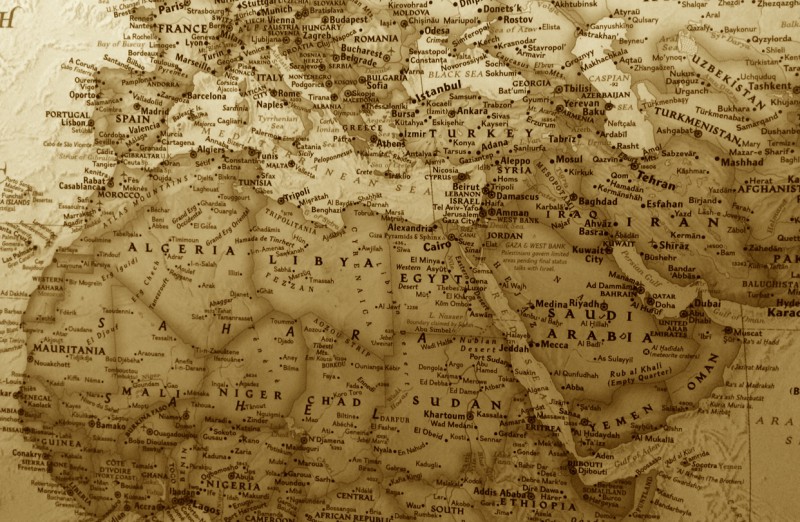
Using religious frameworks in political contestation and mobilisation processes has become more eminent in recent decades spiralling an intricate debate on the conceptualisation and implementation of such references in the Middle East and North Africa (MENA) region The contradiction, it is argued, mainly lies in the compromising nature of politics and the relatively dogmatic nature of religion. Accentuated by inaccurate media coverage and primordial analytical frameworks, it has become tempting to see religion as responsible for conflicts and underachievement in the MENA region
In the conventional sense, Islamic movements are often held responsible for incorporating religion in political processes. However, this is not always true as the nondemocratic states in the MENA region and elsewhere in the Muslim majority world had constantly attempted to control ideological power – Islamic religion and its organizations in this case – before Islamic movements even came to exist in the form we know today. The power struggle among political, yet conflicting actors over ideological power emerges from ideology’s distinctive form of social organization to legitimatize specific forms of authority and to solve contradictions in society.
By the end of 2010 and the beginning of 2011, uprisings across the Arab world overthrew long-lasting dictators, starting from Tunisia’s Zine Al-Abidine Ben Ali to Egypt’s Hosni Mubarak, Libya’s Muammar Al-Gaddafi and then Yemen’s Ali Abdullah Saleh. The uprisings caused an alteration of these countries’ political systems bringing new overlapping, intertwining and intersecting networks of relations, by which new political actors and temporal dynamics have emerged.
Islamic factions, Salafists, Muslim brotherhood and their different variations, did not join the revolutionary momentum in Egypt from the very beginning, yet they played a major role after the “25 January revolution”. They won 351 seats out of 498, around 70% of the Egyptian parliament. Whereas the conservative Islamic Freedom and Justice Party owned 45.7%, the ultra conservative Salafi Al-Noor Party owned only 23.6% , according to the Official Elections Portal of Egypt.
The Egyptian uprising was not per se a social revolution aimed at changing social structures in the Egyptian society, but rather a political one aimed at deposing a 30-year rule of dictatorship. Yet we can witness a shift in power balance altering the ideological power relations with other power organizations pushing Islamic factions to the top of the political pyramid to appoint a president – Mohammad Morsi – at one time and a shift back to elect a coup-installed regime under Abdulfattah Al-Sisi at another, who accordingly called for an Islamic revolution and reformation of religious discourse. How can we account for such dramatic trajectory divergences within less than five years?
Political contestation and mobilisation processes in the state of Egypt, or any other state for that matter, cannot be reduced to only ideological dimensions. Yet we can clearly observe a power struggle over ideological sources and organizations. Competeing actors engage in a constant struggle to control ideological power networks and sources in order legitimatize, mobilize, persuade, contest, control, lure, coerce and eliminate. Ideology, in other words, is a route to power.
This power struggle within military, security, political and religious institutions could pave the way for political instrumentalisation of Islam and trigger elimination and outbidding processes instead of democratic contestation. Elimination processes are more likely to create new network-like formations on the periphery and interstitial to official power networks relying on religion’s transcendence and socio-spatial extensive organisation.
When a division of labour between those who control security, the military, political institutions and those who control ideological networks occurs, new forms of relations follow. Seizure of power or change of its distribution are more likely to trigger these new forms of relations and perhaps networks, which are variable in their efficiency and capacity. This division of labour necessitates new emergent social relations to satisfy these actors’ needs. Somewhere at the beginning of this process, a space for political instrumentalization of Islam could befall because it constitutes a route to power.
Interstitial forms of extensive interactions, increasingly out of the official control emerge attracting more diffused masses of people, such as the Muslim Brotherhood’s followers, to become part of these interstitial networks, and thus, playing an emergent, yet distinctive form of social organisation to legitimatise specific forms of authority and to solve contradictions in society.
Ideology is a source of power exercised by an ideological network like other political, military and economic powers. However, ideological power can be more resilient if it is shared, divided, organized, reorganized and mobilized by other power networks. While ideological power enjoys a level of autonomy, which impels its networks to serve their own interests individually if possible, it can be stretched over other power organizations passing on a space for dangerously religious outbidding game and a cynical use of religion. That is why ideological power plays a decisive role in the power struggle in the Middle East. It is not the nature of the religion, but rather the usefulness of the ideological power for integrating, stabilising and mobilising social life.


Thank you for this information. It is indeed very good post.